QuestionI have a golden retriever who is 5 months and she is eating everything, things you cannot imagine like dead frogs, bugs, gum, guinea pig poop, her poop, CD's, cords, hair, drinking her urine, even more!!! i knew puppies chew and eat a lot of things but this is beyond what i thought, i feed her three times a day, a good amount to, its driving me crazy, what do i do????!!!!
AnswerHi Cassie,
Though totally repulsive, dead frogs, animal droppings, bugs, gum, and urine are edible! Dogs are gross, what can I say?! You need to prevent access to these items.
In your puppy's case, this might just be immaturity. In an adult dog, a compulsion to eat anything and everything (whether or not the object is edible) it's called Pica.
Pica is a common problem in dogs is the ingestion of unnatural objects such as candy wrappers, toilet paper, or socks. Not only is this behavior a nuisance around the house, but the swallowing of non-food particles poses a serious threat to the health of the dog. The problem requires attention and treatment.
The easiest treatment for pica behavior is to provide adequate exercise and active play for the dog. This might really help your puppy, because she is still so young, and has plenty of energy. Taking your puppy out for a good long walk twice a day will help tire her out, and provide the her with companionship and diversion. If you let your puppy outside by herself in a fenced yard, that is not the same as far as exercise or mental stimulation as a leashed walk. After a long run she will spend more time resting, and this should help use up some energy that was spent looking for items to pick up in its mouth. Though, the Golden Retriever being a retriever breed, has a strong natural urge to pick things up and carry them!
For dogs with an urge to find, chew and hold items within their mouth it is useful to orient the dog towards an acceptable object such as a strong nylon shank bone. Teasing the dog with a bone or chew toy will help stimulate interest in the object. Encourage the dog to play with acceptable chew items. (Make sure the bone or chew item is large enough so that the dog cannot swallow it.)
In cases where it seems that the dog is exhibiting pica behavior in order to gain attention and the dog is performing the behavior in your presence, it is best to ignore the dog if it already has something in its mouth. Any reaction, including an enjoyable chase, or aggressive response, will be regarded as rewarding by the dog. The optimum time for intervention is to divert the dog's attention before the dog approaches an object it intends to pick up. For example, instruct the dog to perform some previously learned command-response, and then reward him through petting or food. This treatment generally involves increased supervision of the dog.
It can also help to booby trap objects or lace objects with taste deterrents such as Tabasco or one of the many commercially available sprays like Citronella spray, and to reduce the dog's appetite by feeding her lesser amounts more often, and by adding fiber to the diet to promote a feeling of fullness.
In most cases, puppies grow out of pica behavior, just be very mindful of your puppy's behavior so you can take steps to prevent her eating something she shouldn't. You should regularly check that non-food items haven't dropped to the floor or accidentally been placed where your puppy can reach them. You can give your puppy high fiber snacks such as green beans, apple wedges (no seeds!) and carrots, that can help her feel full between meals, without adding fat to her diet.
Distract your puppy from unwanted behavior with a clap of your hands, a spray of water or loud noise, but try not to let her know the sound, noise or spray came from you. Teach your puppy a command such as "leave it," say that instead. Praise her when she drops the item, and give her an alternative item to chew.
If she doesn't seem to be growing out of this, stopping pica may require the aid of an animal behavior specialist.
Best of luck,
Patti

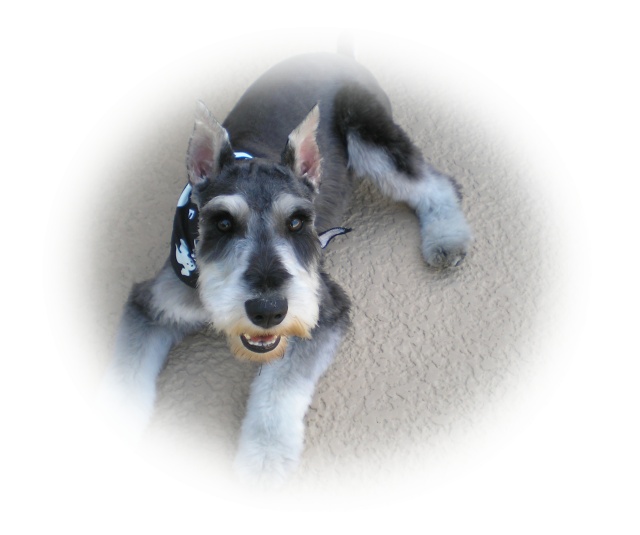 mini-schnauzer limping not able to put full weight on leg
Question
Willy
A couple of hours ago, I walked my 14mon
mini-schnauzer limping not able to put full weight on leg
Question
Willy
A couple of hours ago, I walked my 14mon
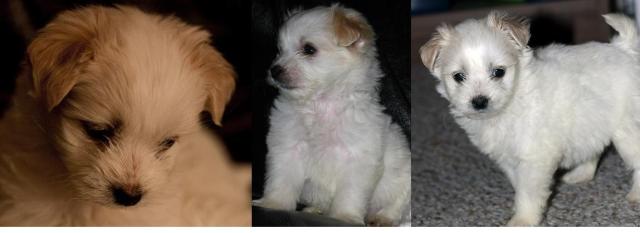 maltese with brown ears
Question
maltese
we bought a dog and owner said its pur
maltese with brown ears
Question
maltese
we bought a dog and owner said its pur
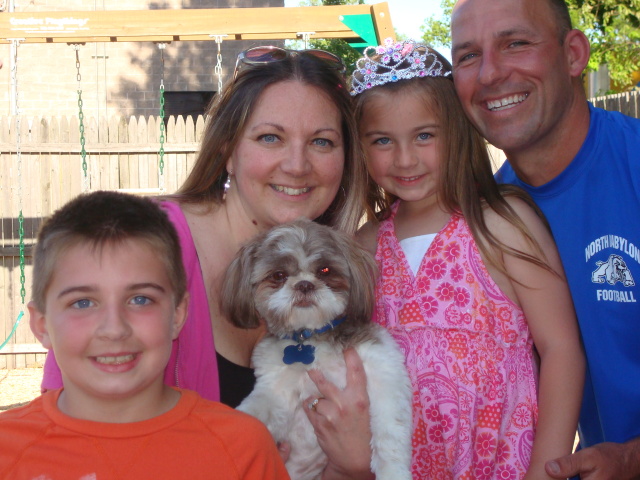 18month old sweet shih tzu starting to growl at me
Question
our family
Hi Valentina,
I have recently beco
18month old sweet shih tzu starting to growl at me
Question
our family
Hi Valentina,
I have recently beco
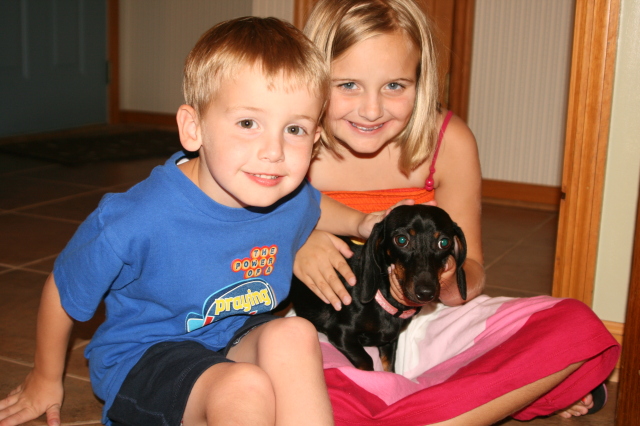 1 year old daschund
Question
our new member
We recently got a one year old
1 year old daschund
Question
our new member
We recently got a one year old
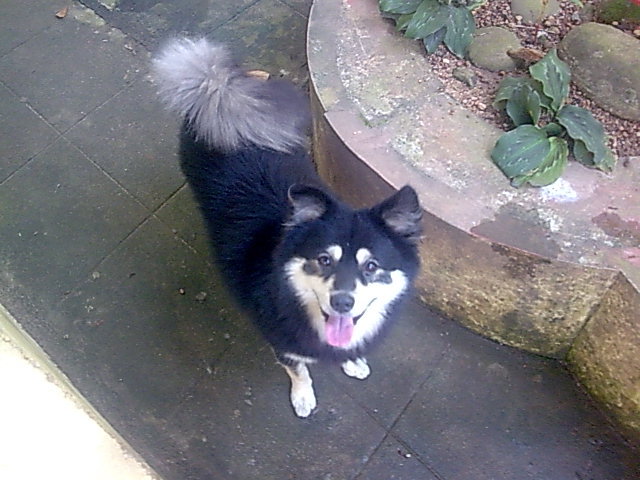 pooping and peeing
Question
snoopy
hi, my name is praveen n i have a dog t
pooping and peeing
Question
snoopy
hi, my name is praveen n i have a dog t